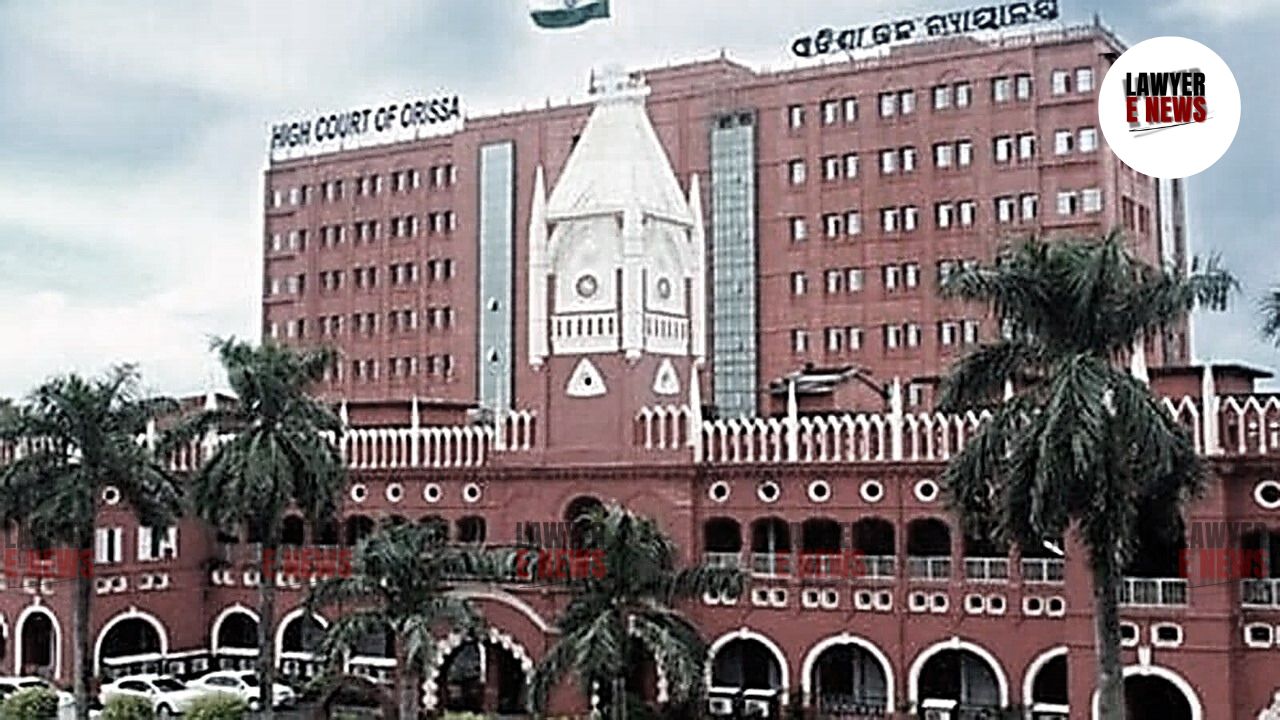-
by Admin
15 February 2026 5:35 AM



Orissa High Court, presided by Justice Sashikanta Mishra, delivered a significant judgment in the case of Goutam Majhi and Others v. Mandhar Bhoi and Others. The Court set aside a First Appellate Court decision that dismissed an appeal on grounds of res judicata without adjudicating the matter on merits. The core issue was whether two separate appeals arising from the same judgment could be heard independently, and whether the dismissal of one appeal could preclude the hearing of the other. The Orissa High Court ruled in favor of the appellants, emphasizing the need for independent adjudication when multiple appeals are filed against the same judgment.
The case originated when the plaintiffs (respondents in the present appeal) filed a suit seeking the declaration of certain sale deeds and a will as void, along with recovery of possession of the disputed properties. The Trial Court partially decreed in favor of the plaintiffs, declaring some sale deeds and the will void while dismissing the suit regarding other properties. Dissatisfied, both parties filed separate appeals. The plaintiffs filed RFA No. 42/78 of 2005 against the partial dismissal, while the defendants filed RFA No. 43/34 of 2005-07 challenging the validity of the will and the declarations made by the Trial Court. The First Appellate Court dismissed the defendants' appeal, invoking the principle of res judicata since the plaintiffs' appeal had already been decided, thereby confirming the trial court's judgment.
The central legal question was whether the principle of res judicata under Section 11 of the Code of Civil Procedure (CPC), 1908, was applicable when two separate appeals arise from the same judgment. The defendants argued that the subject matter of the two appeals was distinct and that the First Appellate Court's failure to hear both appeals together amounted to an error of procedure. The plaintiffs, on the other hand, contended that the defendants were given an opportunity to participate in the hearing of the first appeal and that the dismissal of the first appeal precluded the hearing of the second one.
Justice Sashikanta Mishra observed that the First Appellate Court committed an error by not hearing the two appeals arising from the same judgment together, which is the usual procedure to avoid conflicting orders. The Court noted, "It is well-settled that no party can suffer because of mistake committed by the Court," referencing the Supreme Court's ruling in Karnail Kaur & Others v. State of Punjab and Others. The Orissa High Court further held that the principle of res judicata under Section 11 of the CPC was inapplicable in this case, as the subject matter of the two appeals was different. "The matter directly and substantially in issue in the former appeal ought to have been ‘directly and substantially in issue’ also in the subsequent appeal," the Court stated.
The Court emphasized that when multiple appeals arise from the same judgment, the appellate court must hear them together to prevent procedural injustice and conflicting orders. It highlighted that the First Appellate Court's failure to do so had caused serious prejudice to the defendants' right of appeal under Section 96 of the CPC. Consequently, the Orissa High Court set aside the First Appellate Court's judgment and remitted the case back to the First Appellate Court to hear the defendants' appeal afresh on its merits.
The Orissa High Court's ruling underscores the importance of proper procedural conduct when dealing with multiple appeals arising from the same judgment. It reinforces that the principle of res judicata cannot be invoked where distinct matters are at issue in separate appeals and where proper judicial procedure requires those appeals to be heard together. The Court's decision ensures that appellants' rights to a fair hearing on merits are preserved.
Date of Decision: September 13, 2024
Goutam Majhi and Others v. Mandhar Bhoi and Others
